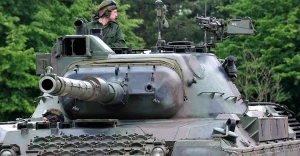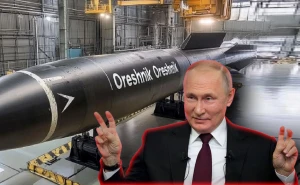
Putin pays off Beijing with territories
Russian leader Vladimir Putin hands over the Tumen River in the Far East to China
The practice of international relations has always taught us that after international negotiations are completed, some sort of 'needle in a haystack' will always come out after a while. No, I am not talking about the Peace Summit in Switzerland. I'm talking about Vladimir Putin's visit to China last month. All observers and experts unanimously stated that it was an empty, fruitless meeting between the leaders of Russia and China. But it turns out that it was not so empty...
''Russia, China, and North Korea are starting talks on demolishing the DPRK-Russia Friendship Bridge over the Tumen River and allowing Chinese merchant ships to pass through the border Tumen River into the Sea of Japan, as previously agreed during the Kremlin's visit to Beijing on May 16-17.''
This was reported by the Japanese magazine Nikkei Asia.
The Tumen River flows along the border of China, North Korea and Russia and empties into the Sea of Japan. Chinese ships can currently navigate the river freely only up to the village of Fanchuan and are unable to reach the sea, as Beijing needs permission from the DPRK to pass the remaining 15 km stretch. China previously received such permission from Russia last month. At the same time, the Druzhba Bridge across the river, built between North Korea and Russia in Soviet times, is an additional obstacle to the passage of large Chinese ships.
After their meeting in May, Xi Jinping and Vladimir Putin included in their joint statement a clause on Russia and China's participation in a 'constructive dialogue' with North Korea over the Tumen River. Prior to that, Beijing had repeatedly called on Moscow and Pyongyang to allow Chinese vessels to pass through the river to the Sea of Japan, offering to create a special economic zone along its banks and demolish the bridge that impedes navigation.
Previously, Russia did not support this initiative of China, fearing that Beijing would thus increase its influence in Northeast Asia. However, against the backdrop of sanctions imposed on Russia for its invasion of Ukraine, Moscow is becoming increasingly dependent on China. Moscow has become financially dependent on Beijing, as well as in the supply of electronic components and cars. Imports from China to Russia have been forced to increase to 37% of the total.
About the author. Rostyslav Demchuk, journalist, expert on Euro-Atlantic issues
The editors do not always share the views expressed by the authors of the blogs.
- News














































